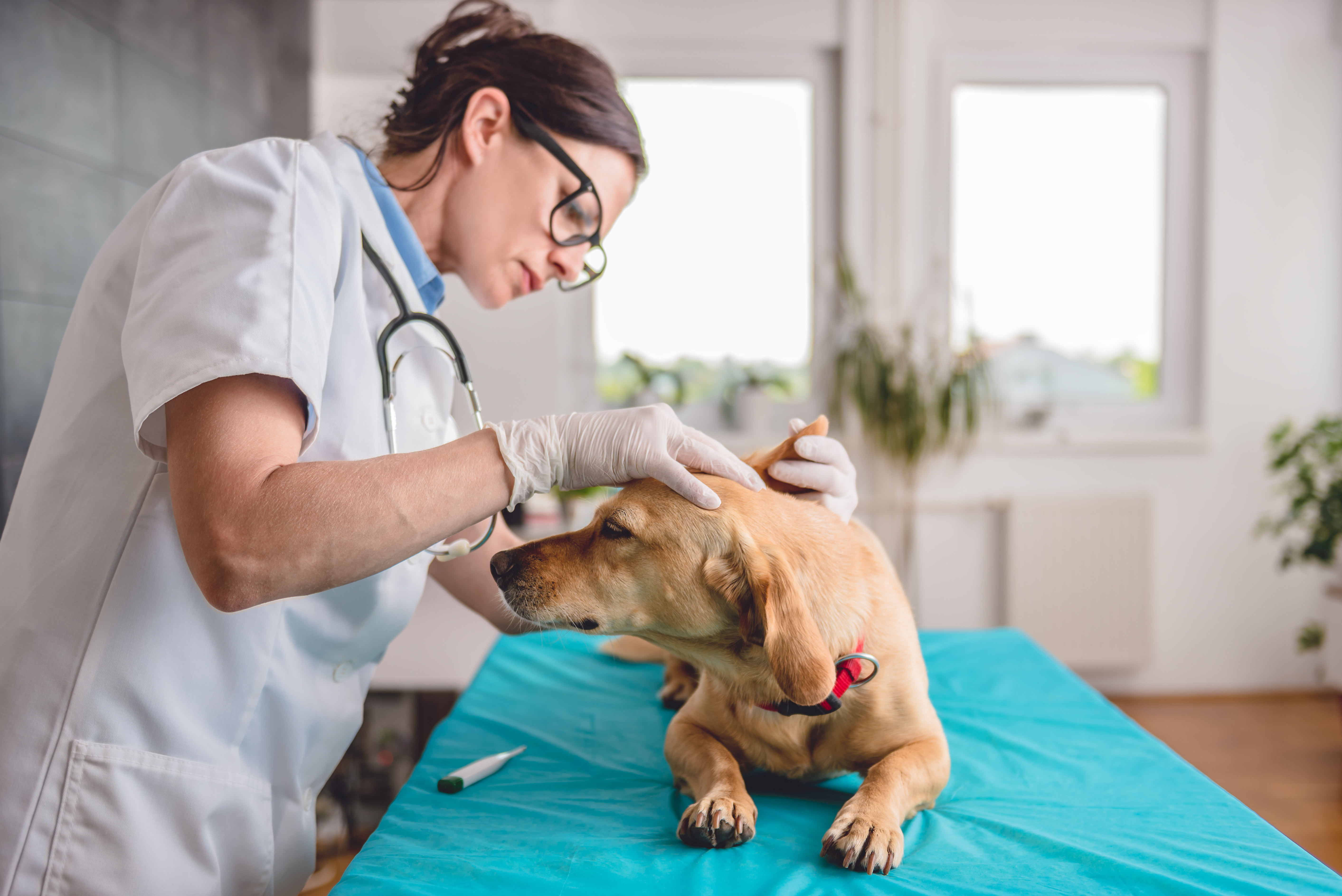Vaccination Guidelines From Your Relied On Vet
Vaccination standards given by your relied on vet play a crucial function in guarding your animal's wellness and wellness. Furthermore, dealing with usual misunderstandings bordering vaccinations can additionally boost pet dog owners' confidence in these preventative actions.

Value of Inoculations
Inoculations play a pivotal duty in guarding pets versus a series of preventable illness. By stimulating the body immune system to recognize and fight certain virus, injections substantially minimize the occurrence of infectious diseases that can influence a pet dog's health and long life. Not only do vaccinations safeguard specific animals, yet they likewise add to herd resistance, consequently decreasing the general occurrence of diseases in the pet dog populace.
Prompt inoculations aid to mitigate the spread of conditions such as rabies, parvovirus, and distemper, which can have severe consequences for both pets and humans. Additionally, inoculations are frequently a demand for boarding centers, brushing solutions, and dog parks, making them necessary for those who desire to mingle their animals.

Core Injections for Pet Dogs
While the particular vaccination requirements of family pets can differ based on private factors, core vaccines are generally suggested to shield versus one of the most common and severe conditions (Emergency Vet). Core vaccines are those regarded vital for all animals, no matter their lifestyle or geographical area, as they guard versus possibly fatal and extremely transmittable health problems
For pets, the core vaccinations include those for canine distemper, parvovirus, adenovirus (hepatitis), and rabies. Adenovirus can result in liver disease, while rabies is a zoonotic disease that postures a risk to both pets and humans.
In pet cats, core injections incorporate feline panleukopenia, feline calicivirus, feline herpesvirus (rhinotracheitis), and rabies. Feline panleukopenia is a very contagious viral disease that affects the immune system and intestinal tracts. Calicivirus and herpesvirus are significant contributors to upper breathing infections in cats, while rabies stays an essential issue for public health and wellness.
Seek advice from your veterinarian to guarantee your family pets get their core vaccinations on time.
Non-Core Vaccines Explained
Non-core vaccines are customized to deal with specific dangers related to an animal's lifestyle, setting, and direct exposure to specific conditions. Unlike core vaccinations, which are widely recommended for all animals, non-core injections are thought about based upon specific conditions. These injections are specifically essential for pets that may experience distinct virus due to their geographical area, traveling practices, or tasks.
Instances of non-core vaccinations include those for Bordetella bronchiseptica, which is connected to kennel coughing, and Lyme condition, created by ticks. Family pets that often connect with various other pets, such as those in boarding facilities, pet dog parks, or grooming environments, might take advantage of Bordetella vaccination. Similarly, if you stay in an area where Lyme condition is prevalent, vaccinating against this condition can be a sensible selection for outdoor-loving pet dogs.
Various other non-core vaccines might include those for leptospirosis, canine flu, and feline leukemia, relying on the details risk aspects existing. It is vital to have a detailed conversation with your vet about your pet's lifestyle and the potential requirement for these vaccinations, making sure a tailored inoculation strategy that finest safeguards your furry pal.
Inoculation Schedule Review

As pets develop, it is crucial to follow the suggested booster inoculations. Emergency Vet. For grown-up pets, core injections are generally provided each to three years, depending upon the specific vaccination and regional regulations. Non-core vaccines might be recommended based on important site way of life aspects and local illness occurrence, demanding a tailored approach
Routine vet exams are vital for upgrading inoculation timetables. Your veterinarian can provide guidance on the most ideal booster shots for your family pet, factoring in age, health and wellness standing, and environmental risks. By remaining positive and notified, pet dog owners can guarantee their furry buddies receive prompt and effective vaccinations, thus protecting their health and health throughout their lives.
Common Myths Regarding Vaccinations
Misunderstandings about pet inoculations can cause complication and hesitation among family pet owners pertaining to the immunization process. One widespread misconception is that vaccines are unnecessary for interior pets. While it's true that indoor pets face lower dangers, they are not completely unsusceptible to conditions, as pathogens can be presented via various ways, consisting of human apparel and other pet dogs.
An additional mistaken belief is that vaccinations linked here can cause the conditions they aim to avoid. Actually, a lot of injections have inactivated or attenuated virus, which can not create condition in healthy and balanced animals. Some animal owners likewise believe that their family pets need to not be vaccinated if they are already healthy and balanced; however, inoculations are a proactive measure that aids prevent the start of illness.
Furthermore, numerous pet proprietors are afraid that vaccines will certainly lead to long-lasting health problems. The advantages of inoculation-- protecting animals from possibly serious illness-- far outweigh the risks.
Final Thought
In recap, adherence to inoculation standards is essential for making sure the wellness and longevity of animals. Eliminating common myths bordering inoculations even more reinforces the value of educated decision-making in pet treatment.
Not only do vaccinations protect individual pets, but they additionally contribute to herd resistance, therefore reducing the overall frequency of illness in the pet dog populace.
Misunderstandings regarding animal inoculations can lead to complication and hesitation among pet proprietors concerning the booster shot process. While it's true that indoor family pets face lower threats, they are not totally immune to illness, as virus can be introduced with different ways, including human clothing and various other animals.
Some pet dog owners additionally believe that their pet dogs must not be immunized if they are already healthy; however, inoculations are a proactive step that aids protect against the beginning of illness.
The benefits of inoculation-- my blog safeguarding pet dogs from potentially life-threatening diseases-- far outweigh the threats.